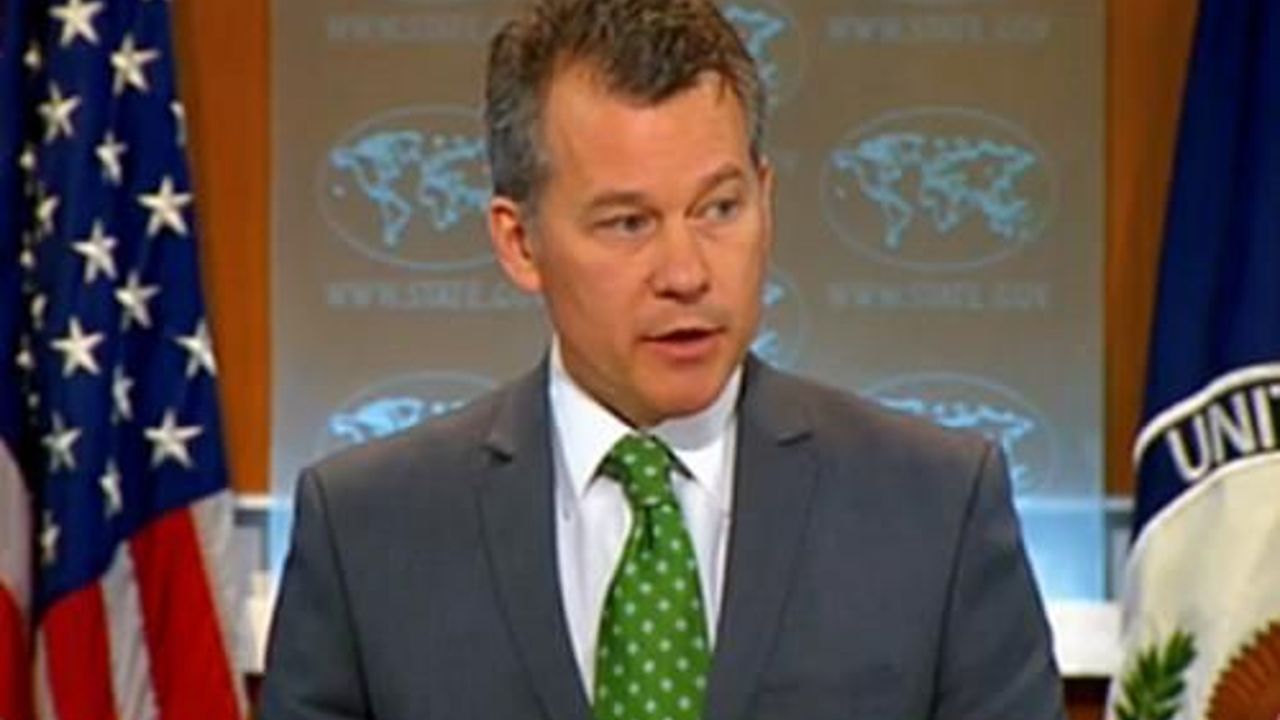United States wants good relations between Turkey and Iraq
Politics |
The U.S. is supportive "of anything that improves relations between Turkey and Iraq," the State Department said.

Font Size:
The United States desires solid relations between Iraq and Turkey, the State Department said Friday, as Turkey's prime minister engaged in a two-day visit to Iraq.
The Turkish government has played a "very important role in recent weeks and months in dealing not only with the threat that comes from ISIL in Syria but also ISIL in Iraq," said State Department spokesman Jeff Rathke.
Some of those efforts include a decision to host part of the train and equip program for the Syrian opposition fighters against the terror group and to provide humanitarian support for refugees from neighboring Syria and Iraq.
Turkey has also taken steps to impede foreign terrorist financing and the flow of foreign terrorist fighters.
The U.S. supports "anything that improves relations between Turkey and Iraq," he added. "We value greatly the Turkish contribution, which I think is one reason why the vice president is going there."
The Turkish prime minister is the first foreign leader to visit Baghdad since a new Iraqi government was formed in early September.
Relations between Turkey and Iraq have been soured in recent years because of political differences and Baghdads anger was visibly angry over energy cooperation between Ankara and the Kurdish Regional Government in northern Iraq.
With a new government in Baghdad, Iraq is reaching out to neighboring countries while fighting within an international coalition against ISIL. Turkey is part of that coalition and has allowed Iraqi Kurdish forces to cross the border into Syria to help fight against the terror group.
Before departing for Baghdad, Turkish Prime Minister Ahmet Davutoglu said his country is committed to supporting the renewal of Iraqs economic growth of Iraq.
Anadolu Agency
The Turkish government has played a "very important role in recent weeks and months in dealing not only with the threat that comes from ISIL in Syria but also ISIL in Iraq," said State Department spokesman Jeff Rathke.
Some of those efforts include a decision to host part of the train and equip program for the Syrian opposition fighters against the terror group and to provide humanitarian support for refugees from neighboring Syria and Iraq.
Turkey has also taken steps to impede foreign terrorist financing and the flow of foreign terrorist fighters.
The U.S. supports "anything that improves relations between Turkey and Iraq," he added. "We value greatly the Turkish contribution, which I think is one reason why the vice president is going there."
The Turkish prime minister is the first foreign leader to visit Baghdad since a new Iraqi government was formed in early September.
Relations between Turkey and Iraq have been soured in recent years because of political differences and Baghdads anger was visibly angry over energy cooperation between Ankara and the Kurdish Regional Government in northern Iraq.
With a new government in Baghdad, Iraq is reaching out to neighboring countries while fighting within an international coalition against ISIL. Turkey is part of that coalition and has allowed Iraqi Kurdish forces to cross the border into Syria to help fight against the terror group.
Before departing for Baghdad, Turkish Prime Minister Ahmet Davutoglu said his country is committed to supporting the renewal of Iraqs economic growth of Iraq.
Anadolu Agency
Similar News
Video News

WORLD
26 Mart 2024 - 11:18
Photo News






